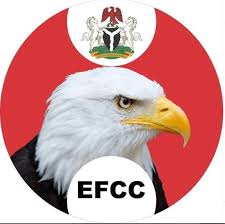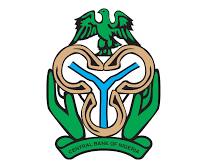Politics
Smoky Conversion of EFCC’s Recovered #100Billion into Students Grant

THE Economic and Financial Crimes Commission (EFCC) recently announced that N100 billion traced from corruption cases has been channeled into the Federal Government’s student loan programme and consumer credit scheme.
The Agency Director of Public Affairs, Wilson Uwujaren who disclosed above last Thursday while presenting the agency’s “Two Years of the EFCC Under Olukoyede: A Mid‑term Report” in Abuja, noted that overall recoveries in the past two years amounted to N566.3 billion, $411.5 million, £71,306, €182,877, and several other currencies.
“A total of N100 billion of the recovered funds was invested in these two critical social‑investment programmes,” Uwujaren said, underscoring the agency’s commitment to repurposing looted assets for public benefit. He added that several government agencies, including the Niger Delta Development Commission (NDDC), Asset Management Corporation of Nigeria (AMCON), Federal Inland Revenue Service (FIRS), and National Health Insurance Authority (NHIA), have also benefited from recovered funds.
Repurposing recovered funds like ₦100 billion into student loans and credit schemes requires clear legislative backing, transparent oversight, and public accountability—none of which appear fully evident in this case.
Legal and Legislative Requirements for Repurposing Recovered Funds
To legitimately redirect recovered public funds into social investment programmes like student loans or consumer credit, the following legal and procedural steps are typically required:
Final Forfeiture Order by a Court: Funds recovered from corruption cases must be legally forfeited through a court judgment. Without this, the EFCC cannot claim ownership or reallocate them.
National Assembly Approval: The Nigerian Constitution vests control of public funds in the National Assembly. Any reallocation of recovered assets into new programmes—especially those not previously budgeted—requires legislative appropriation through the annual budget or a supplementary bill.
Presidential Authorization: While the President may propose or approve such initiatives, it must be backed by law. Executive fiat alone cannot override constitutional provisions on public finance.
Public Procurement and Oversight Mechanisms: The administration of student loans and credit schemes must follow due process under the Public Procurement Act, with oversight from bodies like the Bureau of Public Procurement (BPP) and the Office of the Auditor-General.
Transparency and Reporting: Agencies like the EFCC must publish detailed reports on how funds are used, including beneficiaries, disbursement criteria, and performance metrics. This is essential for public trust and legal compliance.

Why Nigerians Are Skeptical
Given Nigeria’s history of opaque governance and unresolved allegations against the EFCC itself, public skepticism is not misplaced. Here’s why this initiative feels like an “expensive joke” to many:
Lack of Legislative Debate: There’s no record of the National Assembly debating or approving the conversion of ₦100 billion into these schemes. This undermines legitimacy.
EFCC’s Credibility Issues: Allegations of internal corruption, selective prosecution, and political bias have plagued the EFCC for years. Without resolving these, its role in managing public welfare funds is questionable.
No Clear Framework for Loan Disbursement: Nigerians have yet to see a transparent, inclusive, and accessible framework for how these loans will be administered. Who qualifies? What are the terms? Who monitors repayment?
Distrust in Government Intentions: Under a government perceived to sidestep due process, even well-meaning programmes are viewed with suspicion. The fear is that funds may be diverted, mismanaged, or used for political patronage.
Should Be Done
To restore confidence and ensure legality, the Commission is expected to publish a White Paper detailing the legal basis, operational framework, and oversight mechanisms for the fund conversion. Engage the National Assembly to formally approve and monitor the initiative.
Create an Independent Oversight Committee with civil society, student unions, and financial experts; and audit and Public Disclosure of all transactions related to the scheme.
This situation echoes Fela’s critique of Nigerian governance: flashy announcements masking systemic rot. If the government truly wants to earn public trust, it must go beyond rhetoric and embrace transparency, legality, and accountability.
Efforts to get clarifications from Wilson Uwujaren on the matter via telephone communication, proved abortive.





































